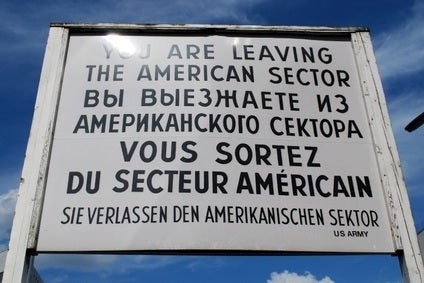No sooner did the final bars of the score to this year’s triumphant Winter Olympics in the Russian city of Sochi fade into memory – accompanied by a tear-shedding bear reminiscent of the Moscow Olympics in 1980 – than all that goodwill seems to have evaporated in a puff of smoke.
In events which are moving with rapid escalation and using language reminiscent of 20, 30 years ago, Russia and the West have squared up to each other this week against the backdrop of a crisis that seems to have erupted straight from the pages of a Frederick Forsyth novel.
The issues are well aired – the ousting of existing Ukrainian President Viktor Yanukovych appears to have led to the de factor Russian occupation of the autonomous region of Crimea – an assertion Moscow would vigorously deny.
That in turn has seriously spooked the markets as the US has led strident calls for the imposition of sanctions- albeit with notably less enthusiasm from its European Union allies whose economic ties with Russia – France is building two warships for Moscow for example – run deep.
The situation has created a tense stand-off echoing that which existed for 45 years between East and West, but with Russia now a US$2tn economy, the economic stakes have radically altered.
In such a fluid situation, rumour and counter-rumour are rife and although there does seem to be a bit more jaw-jaw than war-war as I write this, the potential remains for a flashpoint to spark at any moment, perhaps triggered by America’s famous ‘strategic corporal’ moment.
Echoes of the Cold War – a period during which the world held its nuclear breath for decades – were also revived by news this week the US is to apparently send 12 F-16s to Poland and some fighter aircraft to Lithuania, while Russia itself has launched a massive air defence exercise just east of the Ukrainian border.
Does such tension trickle down to the automotive sector or is it immune from the ebbs and flows of national politics – despite its current dramatic nature?
Well, very much so, according to two eminent sources I spoke to this week, both Moscow-based and both seeing on the ground the fall-out of the machinations playing out between Moscow, Kiev, Washington, Brussels and Crimea.
That is starting to translate into, if not exactly a stampede, then a concerted uptick in auto sales interest as the rouble begins to come under fierce pressure, plummeting 10% this week alone.
“It is pretty obvious with the devaluation of the rouble, some action beyond what we have seen seems to be rather overdue,” Association of European Businesses Automobile Manufacturers Committee chairman, Joerg Schreiber, told me from Moscow.
“I would not be surprised if we would see pricing [increases] beyond what we saw at the beginning of the year. This is what customers think and hence the high level of traffic.”
Russia is a tough place whose population has had to endure more than their fair share of colossal political upheavals in the last century, but they are a canny race, they’ve had to be to survive revolution, war and political repression.
Joerg Schreiber again: “Customers are not stupid – Russians have experience of decline of their currency and they know if something is imminent. Sooner or later, import prices will rise. That is why all those planning to buy a car are rushing to do this now.”
Staying in Moscow, Ernst & Young CIS automotive sector leader, Bill King, equally pointed to the hardiness of Russian citizens, for whom the latest fast-moving events are just one more milestone in their extraordinary history.
“They [Russians] have a history where they have had crises,” said King. “You go back to 2008/2009, this automotive market fell by 50%, there is precedent [but], I would be very surprised if it fell to that extent.”
His comments were echoed by Schreiber across town at the AEB, who noted: “Dealing with Russia, they are used to preparing for the worst and hoping for the best.”
A devaluing rouble meanwhile will exert pressure on foreign OEMs and suppliers importing into Russia, with any resultant price increases feeding into inflation.
That in part – and King says grocery prices are already rising in Moscow – coupled with a general sense of unease – is seeing Russians eye hard assets such as cars with more favour.
As Schreiber puts it: “The majority of the market would rather expect rougher times to be ahead, particularly in the second half of this year,” which could precipitate stronger immediate sales, although this will have an impact on future activity
“It all depends on how this Ukraine or Crimea situation will resolve [itself],” he says. “If this passes without major tension or additional conflict between East and West, then it might just pass by.
“If that continues to be a worry and certainly it is a worry for the automotive business community, then the expectation for the short term future will be muted.”
A few years back, US Secretary of State, Hilary Clinton, had a meeting with her Moscow counterpart , Sergei Lavrov, at which she famously presented him with a red button, labelled with the Russian for ‘reset.’
Leaving aside the rather unfortunate translation that apparently turned into the Russian word for ‘overcharge’ – not to mention the symbolism of the red button – everyone could do with a bit of a reset in this current situation.
Not the least of which is the auto industry, nervously eyeing events far away in the Black Sea, that could have far reaching repucussions much closer to home.







